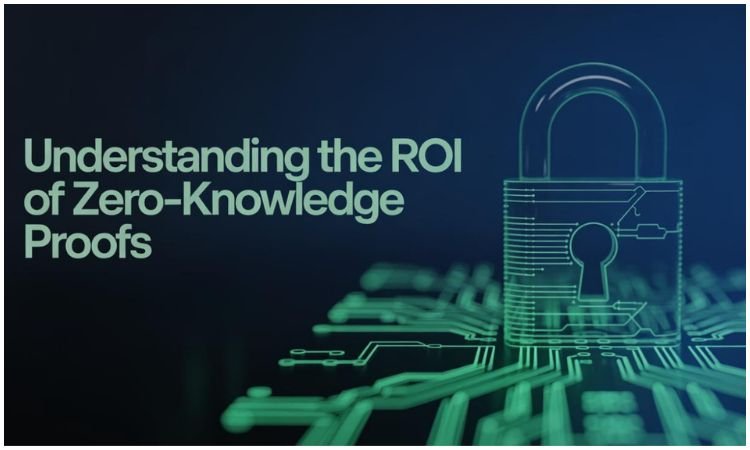
India’s fight against terrorism has been long and multifaceted, with one of the most challenging areas being blockchain in terrorism financing. Terrorist organizations exploit loopholes in traditional financial systems, utilizing methods like informal banking networks, shell companies, and even cryptocurrencies to fund their operations. As these networks become more sophisticated, our efforts to counter them must also evolve. Blockchain in terrorism offers a revolutionary solution by enhancing transparency, traceability, and coordination in tracking and dismantling the financial structures that support terror networks.
The Current Hurdles in Stopping Terror Financing
Despite India’s efforts to curb terrorism, several significant challenges remain in tracking and halting the flow of funds to these groups. First, cross-border tracking remains ineffective, as terrorists often use informal networks like hawala to move money across borders without leaving a trail in formal banking systems. These shadow banking systems are deeply ingrained in certain regions, making it nearly impossible to monitor transactions using traditional financial tools.
Second, intelligence sharing between national and international agencies is still limited. Although various nations and organizations work together to fight terrorism, real-time data exchange is often sluggish or incomplete, allowing terrorists to slip through the cracks before coordinated action can be taken.
Third, opaque financial networks make it difficult to identify and trace the origins of funding. Terrorists exploit charities, shell companies, and offshore accounts to move money in ways that evade scrutiny, leveraging gaps in global regulatory frameworks. Current systems lack the transparency needed to track these financial flows effectively.
Blockchain: The Technology to Revolutionize Counterterrorism
Blockchain technology offers a game-changing solution to these challenges. At its core, blockchain is a decentralized, immutable ledger system that records transactions securely and transparently. Unlike traditional databases, which are controlled by a single entity, blockchain operates on a peer-to-peer network where every participant has access to a copy of the ledger. This makes it nearly impossible for anyone to tamper with the data without being detected, ensuring both transparency and security. By incorporating blockchain into counterterrorism efforts, India can dramatically improve its ability to trace, disrupt, and prevent the financing of terrorism.
Establishing a National Blockchain Intelligence Hub
One of the first and most crucial steps India must take is to establish a national blockchain-based intelligence hub that integrates key defense, intelligence, and financial agencies. The goal of this hub would be to monitor all financial transactions that could potentially fund terrorism. By leveraging blockchain’s transparent and immutable nature, this hub would enable real-time tracking of financial activities, making it much harder for terrorist organizations to hide their funding sources.
This system could act as a collaborative platform between domestic agencies like the Armed Forces, Research and Analysis Wing (RAW), and the Intelligence Bureau (IB), as well as international partners. The decentralized nature of blockchain allows for shared access while maintaining strict data security, meaning that sensitive intelligence could be shared more efficiently without the risk of breaches or manipulation. In short, the system would act as a highly secure, constantly updated ledger of all suspicious financial activities.
Securing Defense Procurement with Blockchain
Blockchain can also be used to improve the security and transparency of defense procurement processes. Defense supply chains are often targeted by adversaries seeking to manipulate, sabotage, or gain intelligence on military operations. By integrating blockchain into procurement systems, India can ensure that all transactions related to critical infrastructure and weaponry are transparent, secure, and tamper-proof.
For instance, blockchain can be used to create smart contracts—automated, self-executing contracts with the terms directly written into code—that oversee every step of the procurement process. These smart contracts would ensure that funds are only released when predefined conditions are met, preventing any manipulation or corruption. Each step in the supply chain, from initial bids to the delivery of equipment, would be recorded immutably on the blockchain, creating a permanent, auditable trail of transactions.
This method would not only prevent infiltration but also ensure compliance with procurement regulations and security standards. Collaborating with blockchain technology firms and defense agencies will accelerate the deployment of this system, ensuring that procurement processes are as secure as the technologies themselves.
The Differences Between Zero-Knowledge Proof and Zero-Knowledge Proof Technology
Zero-information Proof allows one to prove information without allowing him to know what he is disclosing, whereas Zero-Knowledge Proof Technology realizes the concept in other systems such as blockchain. ZKP technology employs algorithms and protocols to secure, private transactions as opposed to Zero-Knowledge Proof theory.
Enhancing Financial Intelligence with AI and Blockchain
In addition to improving procurement, India’s armed forces should be equipped with AI-driven blockchain analytics to map out and analyze terror financing networks. Blockchain provides a treasure trove of transparent financial data, and when combined with artificial intelligence, it can become an even more powerful tool. AI can sift through vast amounts of data on the blockchain to identify patterns, anomalies, and correlations that human analysts might miss. By detecting these patterns in real-time, AI can flag high-risk transactions or individuals involved in suspicious activities.
This enhanced analytical capability would allow intelligence agencies to take swift action, freezing accounts or alerting international partners before funds can be moved to terrorist organizations. It can also help in forecasting future risks by identifying trends in illicit financial activities, allowing authorities to stay one step ahead of terrorists.
Mid-Term Goals: Strengthening Collaboration and Communication
In the medium term, India should focus on expanding its collaboration with global allies by developing joint blockchain-based cybersecurity frameworks. Terrorist financing networks are often global, crossing borders and involving multiple jurisdictions. By working together with international organizations like the Financial Action Task Force (FATF) or through platforms like the G20, India can lead the way in creating a global blockchain-enabled network for monitoring terror financing.
Additionally, blockchain can be deployed to secure communications within the Armed Forces and intelligence agencies. In military operations, secure communication is vital, especially when dealing with high-stakes counterterrorism activities. Blockchain’s decentralized system ensures that even the most sensitive messages are secure from interception or tampering. By using military-grade blockchain systems, confidential communications can be protected with an immutable layer of security, safeguarding mission-critical information from adversaries.
Long-Term Vision: A Fully Decentralized Intelligence Network
In the long run, India should aim to develop a fully decentralized intelligence network driven by blockchain. This would involve using blockchain not only for financial tracking but also for securely storing and analyzing intelligence data. A decentralized intelligence network would significantly reduce the risk of internal data breaches or manipulation, providing a secure platform for data collection and analysis.
Blockchain’s ability to create an immutable record of all intelligence data would ensure the integrity of sensitive information, preventing any unauthorized alterations. Furthermore, this decentralized system would be resilient against external cyberattacks, as there would be no single point of failure.
Finally, blockchain’s integration with smart contracts could automatically flag or block suspicious transactions in real-time. These smart contracts, programmed to detect financial activities linked to high-risk regions or individuals, would act autonomously, freezing funds and alerting authorities the moment illicit activities are detected.
Table 1 summarizes the actions and benefits.
Table 1: Immediate, Mid-Term, and Long-Term Strategies for Blockchain in Counterterrorism
| Time Frame | Action | Benefits |
|---|---|---|
| Immediate (0-6 months) | Establish National Blockchain Intelligence Hub | Real-time tracking of terror financing, enhanced intelligence sharing between agencies |
| Immediate (0-6 months) | Implement AI-driven Blockchain Analytics | Early detection of illicit financial activities, prevention of fund transfers to terror groups |
| Mid-term (6-12 months) | Integrate Blockchain with Defense Procurement | Tamper-proof procurement processes, transparent and auditable records of defense contracts |
| Mid-term (6-12 months) | Collaborate on Blockchain-based Global Cybersecurity Framework | Enhanced international cooperation in tracking cross-border terror financing |
| Long-term (1 year+) | Develop Decentralized Blockchain-driven Intelligence Network | Secure and tamper-proof intelligence data storage, reduction of internal and external risks |
| Long-term (1 year+) | Deploy Smart Contracts to Automatically Block Terror Financing | Automated detection and freezing of suspicious transactions |
Blockchain technology offers India an unprecedented opportunity to transform its approach to combating terrorism financing. By implementing blockchain across financial, intelligence, and defense systems, India can create a transparent, secure, and tamper-proof infrastructure that makes it far harder for terrorist organizations to fund their operations. As this technology continues to evolve, its integration into national security frameworks will become not just beneficial, but essential. Through blockchain, India can ensure that its counterterrorism measures are not only effective but also resilient in the face of future threats.







